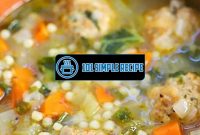Who says you need alcohol to enjoy a festive glass of eggnog during the holiday season? Whether you’re avoiding alcohol or simply looking for a non-alcoholic alternative, you can still indulge in the creamy goodness of eggnog with an authentic recipe that hits all the right notes. In this article, we’ll show you how to make authentic eggnog without alcohol, so you can savor the rich flavors and cozy vibes without the booze. ✨ So put on your apron, grab a whisk, and let’s get started!

History of Eggnog
Eggnog is a traditional holiday drink that brings joy and warmth to homes during the festive season. Its origins can be traced back centuries, and it is often associated with indulgence and celebration. Let’s explore the fascinating history of this beloved beverage and its deep-rooted association with alcohol.
The Origins of Eggnog
The exact origins of eggnog are shrouded in a bit of mystery, as there are several theories about its inception. One theory suggests that eggnog evolved from a medieval British drink called posset, which was made with hot milk, spices, and alcohol. However, another theory points to a similar drink called “hot milk punch” that was popular in seventeenth-century England.
As the drink made its way across the Atlantic, colonists in America put their own twist on it, adding local ingredients like rum from the Caribbean and whiskey from Ireland. The blend of European traditions and American influence led to the creation of the eggnog we know today.
Alcohol in Eggnog: A Historical Perspective
Alcohol has always played a significant role in traditional eggnog recipes. In fact, the name itself gives a clue to its history, as “nog” was a term used in seventeenth-century England to describe a strong beer. Early iterations of eggnog were made with a heady mix of spirits, including brandy, rum, and sherry.
The addition of alcohol to eggnog served multiple purposes. Firstly, it acted as a preservative, allowing the drink to last longer during a time when refrigeration was not readily available. Secondly, the inclusion of spirits provided a warming sensation and added to the festive spirit. It became a cherished beverage associated with holiday gatherings and merriment.
The Popularity of Eggnog
Over time, eggnog gained immense popularity and became an integral part of holiday celebrations in various countries, particularly in the United States and Canada. It symbolized the joy and abundance of the festive season, evoking a sense of nostalgia and tradition.
Although the original recipes often included alcohol, there has been a shift in recent years, with individuals opting for non-alcoholic versions of this classic beverage. Many people prefer to enjoy the rich and creamy flavors of eggnog without the presence of alcohol, making it a more inclusive drink for all ages and preferences.
Eggnog has evolved over centuries, adapting to the changing tastes and preferences of different cultures. Whether enjoyed with or without alcohol, this iconic holiday drink continues to bring warmth and cheer to countless gatherings, reminding us of the joyous traditions that make this time of year so special.
Classic Eggnog Ingredients
When it comes to making authentic eggnog without alcohol, it’s essential to understand the classic ingredients that make up this traditional holiday drink. Whether you’re looking to please a crowd or simply indulge in a creamy treat, knowing the key components is crucial. So let’s dive into the elements that define a classic eggnog recipe.
Eggs: The Base of Eggnog
Eggs serve as the foundation for any authentic eggnog recipe. Their rich and velvety texture contributes to the smoothness and thickness of the drink. The yolks provide a luscious mouthfeel, while the whites add a light and airy touch. Combining both yolks and whites creates a harmonious balance of flavors and textures.
Fun Fact: Eggs symbolize fertility and rebirth, making them a significant ingredient in holiday celebrations.
The Role of Alcohol in Eggnog
While many classic eggnog recipes call for alcohol, it’s possible to enjoy this delicious treat without incorporating spirits. Alcohol traditionally acts as a preservative and flavor enhancer in eggnog, but omitting it allows the other ingredients to shine through. It also makes it suitable for those who prefer a non-alcoholic version or for serving to individuals who cannot consume alcohol.
Note: Skipping the alcohol does not compromise the taste and authenticity of eggnog. The rich flavors of the remaining ingredients more than compensate for its absence.
Other Key Ingredients in Eggnog
In addition to eggs, other essential ingredients contribute to the distinctive character of eggnog. Sugar adds sweetness, balancing the richness of the eggs. Cream or milk creates a creamy and smooth texture, while nutmeg offers warm and comforting notes. Vanilla extract adds an aromatic touch, enriching the overall flavor profile.
Pro Tip: For added depth and complexity, you can experiment with various spices such as cinnamon, cloves, or even a hint of rum extract to mimic the flavor of traditional eggnog.
In conclusion, creating an authentic eggnog without alcohol is easy once you understand the key ingredients that define this classic holiday drink. By utilizing eggs as the base, omitting alcohol, and incorporating other crucial components like sugar, cream, and spices, you can enjoy a delicious and traditional eggnog that captures the essence of the season. So go ahead and whip up a batch of this festive delight to savor the flavors and create lasting memories with family and friends.
Traditional Eggnog Recipe Variations
When it comes to eggnog, there are numerous variations that incorporate alcohol, each offering a unique and delightful flavor profile. Whether you prefer a classic spiked eggnog or a regional twist on the traditional recipe, there’s something for everyone to enjoy. Let’s dive into the world of eggnog variations and explore the possibilities!
Spiked Eggnog: Popular Alcohol Choices
To create a spiked eggnog, you’ll need to select the perfect alcohol choice to enhance the flavors and elevate your holiday drink. Here are a few popular options:
- Rum: This is perhaps the most common choice for spiked eggnog. The rich, smooth flavor of rum adds a depth of taste that complements the creamy consistency of eggnog.
- Bourbon: Known for its strong and distinctive flavor, bourbon adds a robust twist to traditional eggnog. It creates a harmonious balance of sweetness and spiciness.
- Brandy: If you’re looking for a more sophisticated option, brandy is the way to go. Its fruity undertones and smooth finish bring a refined touch to your eggnog.
- Whiskey: For those who enjoy bold flavors, whiskey is an excellent choice. Its smoky and woody notes add complexity to the creamy texture of eggnog.
No matter which alcohol you choose, remember to exercise moderation and drink responsibly. The alcohol content can vary depending on your preference, so adjust accordingly to suit your taste.
Regional Eggnog Traditions
Eggnog isn’t just a universal holiday drink; it also has regional variations that showcase the diverse culinary traditions around the world. Here are a few interesting regional eggnog variations:
1. Coquito (Puerto Rico): Coquito is a Puerto Rican take on eggnog that incorporates coconut cream and coconut rum. It’s rich, creamy, and has a distinct tropical flavor.
2. Advocaat (Netherlands): This Dutch variation uses brandy, eggs, and sugar to create a thick and creamy eggnog-like drink. It is often served with a dusting of cocoa powder on top.
3. Ponche Crema (Venezuela): Ponche Crema is a Venezuelan eggnog that combines milk, eggs, rum, and a touch of vanilla. It has a smooth and velvety texture, similar to traditional eggnog.
4. Eierpunsch (Germany): Eierpunsch is a warm German eggnog made with eggs, sugar, white wine, and spices like cloves and cinnamon. It is a popular drink during the Christmas season.
Creative Twists on Traditional Eggnog
If you’re feeling adventurous, there are plenty of creative twists on the traditional eggnog recipe that can take your holiday festivities to the next level. Here are a few ideas to get you started:
- Chocolate Eggnog: Add a decadent twist to eggnog by incorporating melted chocolate or cocoa powder. This indulgent variation is sure to satisfy any sweet tooth.
- Spiced Eggnog: Enhance the flavor of your eggnog by adding spices like nutmeg, cinnamon, or cardamom. These warm spices add a comforting touch to the drink.
- Fruity Eggnog: Experiment with your favorite fruits by blending them into your eggnog. Strawberry, raspberry, or even banana can add a fresh and vibrant twist to the traditional recipe.
- Non-Dairy Eggnog: For those who prefer a dairy-free option, there are numerous alternatives available. Substitute cow’s milk with almond milk, coconut milk, or soy milk for a delicious vegan eggnog.
With these creative variations, you can personalize your eggnog to suit your taste preferences and dietary restrictions.
As you can see, eggnog recipes have evolved over the years to include a wide array of flavors and ingredients. Whether you opt for a classic spiked eggnog, explore regional traditions, or get creative with unique twists, there’s no shortage of options to enjoy this festive drink!
Preparing and Serving Eggnog
Eggnog is a classic holiday drink that is enjoyed by many. Whether you are hosting a festive gathering or simply want to enjoy a cozy night in, knowing how to make and serve authentic eggnog without alcohol is a skill that will impress your guests and make your celebrations truly special.
Making Eggnog from Scratch
When it comes to making eggnog from scratch, there are a few key steps that you should follow to ensure a rich and creamy result. To start, gather all the necessary ingredients which include eggs, sugar, milk, heavy cream, nutmeg, and vanilla extract.
- Eggs: Begin by separating the egg yolks from the whites. You will only need the yolks for this recipe.
- Sugar: In a mixing bowl, combine the egg yolks and sugar. Whisk together until the mixture becomes thick and pale yellow.
- Milk and Cream: Slowly pour in the milk and heavy cream while continuing to whisk. This will create a smooth base for your eggnog.
- Nutmeg and Vanilla Extract: Add a generous sprinkle of nutmeg and a splash of vanilla extract to enhance the flavor of your eggnog.
Continue whisking until all the ingredients are well combined and the mixture has slightly thickened. It is important to note that if you prefer a thicker consistency, you can add more cream or adjust the ratio of milk to your preference.
Chilling and Aging Eggnog
Once you have prepared the eggnog mixture, it is important to chill and age it before serving. This step allows the flavors to meld together and creates a smoother texture. Transfer the mixture to a lidded container and place it in the refrigerator for a minimum of 4 hours, but preferably overnight.
️ Pro tip: Chilling your eggnog for a longer period will yield a more flavorful and well-rounded taste.
Garnishing and Serving Eggnog
When it comes time to serve your eggnog, presentation is key. Start by giving the mixture a good stir to ensure everything is well incorporated. Then, pour the chilled eggnog into individual serving glasses or a punch bowl. Garnish each glass with a sprinkle of nutmeg and, for an extra festive touch, a cinnamon stick or a dollop of whipped cream.
Fun fact: Adding whipped cream not only enhances the visual appeal of your eggnog but also adds a creamy and velvety texture.
Serve your freshly made eggnog alongside some tasty holiday treats, such as gingerbread cookies or a slice of fruitcake. Your guests will surely appreciate the extra effort you put into creating this festive and delicious beverage.
Note: Remember to enjoy eggnog in moderation, as it is a rich and indulgent drink. Also, be mindful of any guests who may have dietary restrictions or allergies and provide alternatives such as non-dairy milk or a virgin cocktail option. With these tips and tricks, you are ready to make and serve authentic eggnog without alcohol that will be the highlight of any holiday gathering.
Eggnog Safety Tips and Considerations
Ensure your eggnog is safe to consume by following important guidelines and precautions.
Handling Raw Eggs
When making eggnog recipes, it’s essential to address the handling of raw eggs. Raw eggs can carry bacteria like Salmonella, which can cause food poisoning. To minimize the risk, follow these steps:
- Choose fresh eggs: Select eggs that are not cracked or damaged. Fresh eggs are less likely to contain harmful bacteria.
- Use pasteurized eggs: Consider using pasteurized eggs, which have been heat-treated to kill bacteria. Pasteurized eggs are a safe option for those with compromised immune systems, pregnant women, and young children.
- Separate yolks and whites: Most eggnog recipes require only yolks. Separating the yolks from the whites reduces the risk of contamination.
- Cook the custard: Cooking the eggnog base on low heat until it reaches 160°F (71°C) kills any potential bacteria. This step is crucial if you choose to use raw eggs.
Note: If you’re concerned about the risks associated with raw eggs, you can use pasteurized egg products as an alternative.
Alcohol Content and Consumption Advice
Traditionally, eggnog contains alcohol, usually rum, bourbon, brandy, or whiskey. However, if you prefer a non-alcoholic version, you can omit the alcohol and still enjoy a delicious eggnog. Here are a few considerations:
- Non-alcoholic alternatives: Replace the alcohol with an equal amount of milk or a combination of milk and cream for a creamy texture without the boozy kick.
- Add flavor with extracts: Enhance the taste of non-alcoholic eggnog by incorporating vanilla or other extracts like nutmeg, cinnamon, or almond.
- Consider your audience: Non-alcoholic eggnog is suitable for everyone, including kids, pregnant women, and individuals who avoid alcohol for personal or health reasons.
- Serve responsibly: If you choose to include alcohol in your eggnog, make sure to label it appropriately and avoid serving it to individuals who are underage or should not consume alcohol.
Remember, moderation is key. Alcohol can impair judgment and coordination, so it’s essential to consume eggnog responsibly and be aware of your alcohol tolerance.
Storing and Shelf Life of Eggnog
To maintain the freshness and quality of your eggnog, proper storage is crucial. Follow these guidelines to ensure your eggnog stays safe to consume:
- Refrigerate promptly: After preparing your eggnog, refrigerate it within two hours to slow down bacterial growth.
- Store in airtight containers: Transfer your eggnog to clean, airtight containers to prevent it from absorbing odors or flavors from other foods in the refrigerator.
- Consume within a week: Homemade eggnog is best consumed within one week. Discard any leftover eggnog beyond that period.
- Freezing eggnog: If you want to extend its shelf life, eggnog can be frozen for up to three months. However, note that the texture may change slightly upon thawing.
Note: Always check for any signs of spoilage, such as off flavors, unusual consistency, or foul odor. If in doubt, throw it out.
By following these eggnog safety tips, you can confidently enjoy delicious homemade eggnog without alcohol and ensure a delightful experience for yourself and your loved ones. Remember to prioritize food safety and enjoy the festive season responsibly.
Thank you for taking the time to read our article on the traditional eggnog recipe with alcohol. We hope you found it informative and helpful in creating a delicious holiday drink. If you have any further questions or need more recipe ideas, please don’t hesitate to visit us again in the future. We are continuously updating our content to provide you with the best and most accurate information. Cheers to a joyful and festive holiday season!
Frequently Asked Questions
Here are some frequently asked questions about the traditional eggnog recipe with alcohol:
| No. | Questions | Answers |
|---|---|---|
| 1. | Can I make eggnog without alcohol? | Yes, you can make a non-alcoholic version of eggnog by simply omitting the alcohol and adjusting the other ingredients accordingly. It will still have the same creamy texture and delicious flavor. |
| 2. | What type of alcohol is traditionally used in eggnog? | Brandy, rum, or bourbon are the most commonly used alcohols in traditional eggnog recipes. They add a rich and aromatic flavor to the drink. |
| 3. | Can I substitute the alcohol with a non-alcoholic option? | Yes, if you prefer not to include alcohol in your eggnog, you can substitute it with ingredients such as vanilla extract or almond extract to add some depth of flavor. |
| 4. | How long can I store homemade eggnog? | Homemade eggnog should be consumed within 2-3 days. It is best to store it in a tightly sealed container in the refrigerator to maintain its freshness and flavor. |
| 5. | Can I make a vegan version of eggnog? | Yes, you can make a vegan version of eggnog by using plant-based milk such as almond milk or coconut milk, and replacing the eggs with ingredients like silken tofu or cashews to achieve a creamy texture. |
| 6. | Are raw eggs safe to consume in eggnog? | To minimize the risk of consuming raw eggs, it is recommended to use pasteurized eggs or heat the eggnog mixture to a safe temperature before consuming it. |
Cheers to a Festive Holiday Beverage
We hope you enjoy making and savoring this classic alcoholic eggnog recipe during the holiday season. Its creamy and aromatic flavors are sure to bring warmth and joy to your gatherings. Remember to toast to the good times with family and friends, and we look forward to sharing more delicious recipes with you soon. Happy holidays!
Jump to Recipe
Traditional Eggnog Recipe with Alcohol

Learn how to make the traditional eggnog recipe with alcohol for a creamy and festive holiday drink. Perfect for celebrating with family and friends.
- 4 cups whole milk
- 1 cup heavy cream
- 1/2 cup granulated sugar
- 6 large egg yolks
- 1/2 cup brandy or rum
- 1/4 cup bourbon
- 1 teaspoon vanilla extract
- 1/2 teaspoon ground nutmeg
- Whipped cream (for garnish)
- Ground cinnamon (for garnish)
- In a large saucepan, heat the milk, heavy cream, and 1/4 cup of sugar over medium heat until it begins to steam.
- In a bowl, whisk together the egg yolks and remaining 1/4 cup of sugar until thick and pale yellow.
- Slowly pour the hot milk mixture into the egg yolks, whisking constantly to prevent curdling.
- Return the mixture to the saucepan and cook over low heat, stirring constantly, until it thickens and coats the back of a spoon.
- Remove from heat and stir in the brandy or rum, bourbon, vanilla extract, and ground nutmeg.
- Transfer the eggnog to a pitcher or serving bowl, and refrigerate for at least 4 hours or until chilled.
- When ready to serve, pour the chilled eggnog into individual glasses.
- Garnish each glass with a dollop of whipped cream and a sprinkle of ground cinnamon.
- Serve and enjoy!






